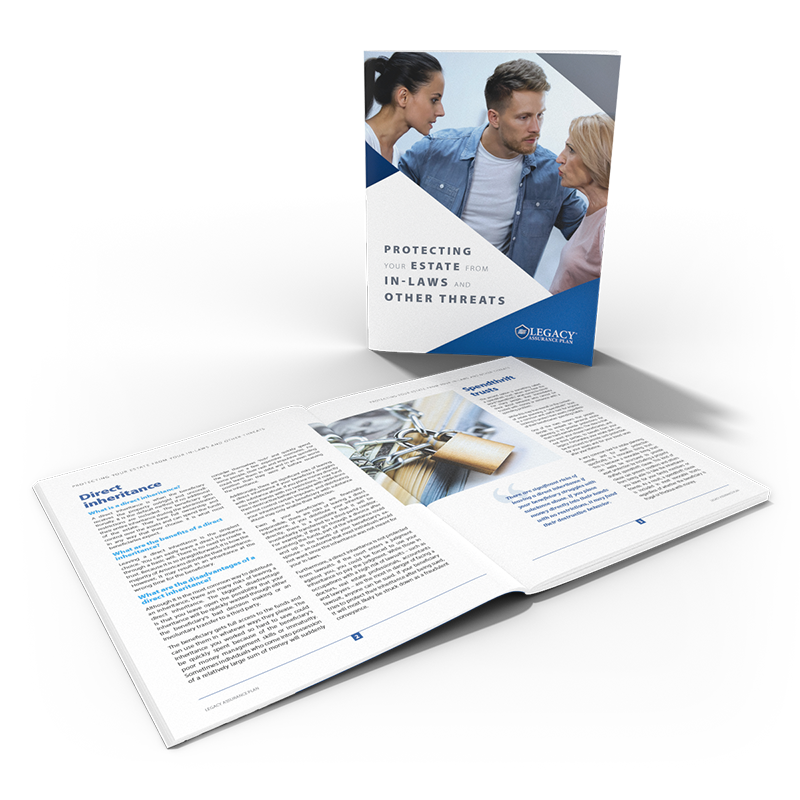A common estate planning goal is for your property to go to the intended beneficiaries and not be diverted to third parties. Parents are often concerned that an inheritance will go to their married child and not get diverted to their son-in-law or daughter-in-law in a divorce – or be lost to a creditor or other debt.
There are four main options to control the timing of the distribution of an inheritance:
Directly to beneficiaries at your passing
Including a spendthrift provision
A percentage at three ages (a “sprinkling trust”)
A lifetime protection trust
What are the risks of direct inheritance?
Although it is the most common way to distribute an inheritance, there are many risks of leaving a direct inheritance, including:
- Inheritance will be quickly wasted through the beneficiary's bad decision making.
- The beneficiary gets full access to the funds and can use them in whatever ways they please.
- If your beneficiary struggles with substance abuse, it may fund their destructive behavior.
- It could be involuntarily transferred to a third-party creditor.
- It's not protected from divorce, lawsuits and judgments.
- The beneficiary's occupation places them at high risk of lawsuits.
- The beneficiary has poor money management skills.
- The beneficiary is vulnerable to predators.
What is a spendthrift trust?
A spendthrift trust is a specific kind of trust that includes provisions that limit a beneficiary's access to its principal, under the oversight of a trustee. With a spendthrift trust, the beneficiary has no interest in the trust's assets until the trustee makes a distribution. Since the beneficiary has no interest in the trust's assets, their potential creditors are not permitted to reach the assets held in the trust to satisfy a debt or other obligation. The trust's assets would also not be subject to equitable division in a divorce.
What are the disadvantages of the sprinkling trust?
A common way to restrict a beneficiary's access to their inheritance is a sprinkling trust under which the beneficiary receives their inheritance in pieces at set times. A common example would be when a beneficiary receives one-third of their inheritance at 25, 30 and 35. It is based on the assumption that the beneficiary is “old enough” to manage the funds without any assistance at the selected ages. However, this may or may not be true. Many people do not automatically gain money-management skills and financial responsibility as they age. More importantly, there is no asset protection from creditors. A creditor could require that the distribution be made to them instead since the beneficiary is entitled to the distribution.
What is a lifetime protection trust?
A lifetime protection trust is a type of trust designed to protect an inheritance from involuntary third-party transfers and a beneficiary's poor money management. The inheritance is held in a trust and managed by a trustee. The trustee has complete discretion in making distributions when the time is right. The trust will include an appropriate standard to guide the trustee in making distributions. For example, the lifetime protection trust could allow distributions for the beneficiary's education and maintenance in health and reasonable comfort. Likewise, the standard could be support in the beneficiary's accustomed manner of living. Distributions are not mandatory at any set age or stage in life. The inheritance is protected from involuntary third-party transfers by preventing distributions at a bad time in the beneficiary's life. The trustee can avoid making distributions when the beneficiary is going through a divorce, lawsuit or bankruptcy.



